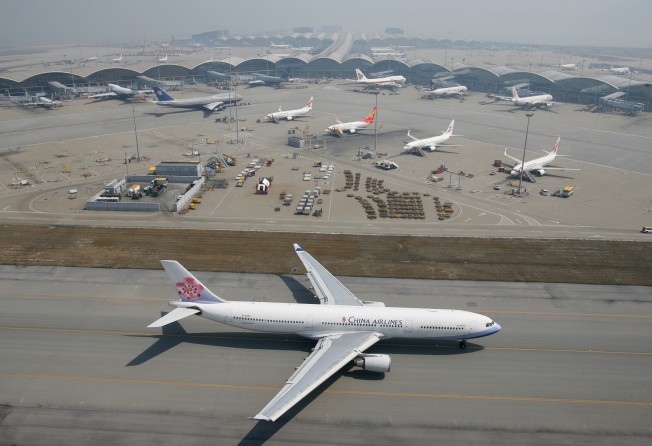Living near an airport could increase risk of strokes and heart disease
US and UK studies find people living near airports more likely to suffer stroke, coronary and cardiovascular disease

People who live close to an airport and are exposed to constant loud noise may face an increased risk of cardiovascular disease, according to research from the UK and the US published on Tuesday.
A study published online by the British Medical Journal looking at the health of people living near Heathrow found those with the highest exposure were 10-20% more likely to be admitted to hospital for stroke, heart disease and cardiovascular illness. There was also an increased risk of death from those diseases.
A linked study of the health of more than six million Americans over the age of 65 living around 89 US airports found that, on average, their risk went up 3.5% for every extra 10 decibels of noise. The scientists warn that what they have found is a link and not proof that high aircraft noise levels cause disease.
But, says Professor Stephen Stansfeld at Queen Mary University of London in an editorial, “these studies provide preliminary evidence that aircraft noise exposure is not just a cause of sleep disturbance and reduced quality of life but may also increase morbidity and mortality from cardiovascular disease.
“Planners need to take this into account when expanding airports in heavily populated areas or planning new airports.”
The UK study was carried out by researchers at the UK Small Area Health Statistics Unit and MRC-PHE Centre for Environment and Health. They looked at the health of residents of 12 London boroughs and nine districts outside London where aircraft noise exceeds 50 decibels - about the volume of a normal conversation in a room - between 2001 and 2005.
Those who had to put up with the highest noise levels - more than 63 decibels in the day or 55 decibels at night - had the highest risks. They make up about 2% of the 3.6 million people covered by the study.
“The exact role that noise exposure may play in ill-health is not well established,” said the lead author, Dr Anna Hansell, from Imperial College London. “However, it is plausible that it might be contributing, for example by raising blood pressure or by disturbing sleep.”
While diet, lack of exercise, smoking and medical conditions all raise people’s risks of cardiovascular disease, the scientists say aircraft noise should not be ignored. “How best to meet commercial aircraft capacity for London and other major cities is a matter of active debate,” they say. “However, policy decisions need to take account of possible effects of environmental noise on cardiovascular health.”
The US study was carried out by scientists at the Harvard school of public health and Boston University school of public health. They found that 2.3% of hospitalisations for cardiovascular disease among older people living near airports were attributable to aircraft noise.
Despite some study limitations, the researchers say their results “provide evidence of a statistically significant association between exposure to aircraft noise and cardiovascular health”.
Other scientists said more evidence was needed if noise was to be established as the actual cause of illness.
“A major difficulty in interpreting what these studies tell us is that they are based on data for geographical areas, not for individual people,” said Kevin McConway, a professor of applied statistics at the Open University, adding: “Geographical areas don’t get heart attacks and strokes - individual people do.”